News
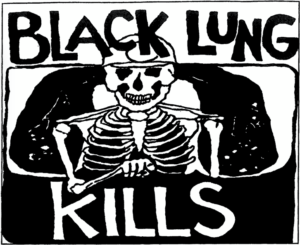 We need your help to do something amazing.
We need your help to do something amazing.
Black Lung Associations across Appalachia are planning an incredible thing: bus loads (possibly over 100!) of retired coal miners with black lung disease, along with widows and family members, are heading to Washington, D.C., next month to advocate for their hard-earned benefits.
This trip won’t be easy. We need top-of-the-line buses that have room for oxygen tanks. We have to make sure miners are safe from the D.C. heat and humidity, because the effects are deadly to those slowly suffocating from this disease. With black lung, it can be hard to walk across the room, but they are preparing to travel halfway across the country.
Can you donate to help? We’re halfway to our goal of $10,000! We also need people to spread the word by sharing our crowdfunding campaign on your social media pages and sending out requests among their personal contacts.
Why now?
The Black Lung Disability Trust Fund provides benefits to coal miners and their surviving dependents in cases where the miners’ employer has gone bankrupt or not been found responsible. But this safety net is in danger of insolvency. Congress failed to extend the excise tax that funds it in 2018 and it has now been cut by more than half. A 2018 GAO report projects that, at the slashed tax rate that went into effect on January 1, the Trust Fund’s revenue will be unable to cover beneficiary payments and administrative costs as soon as 2020.
Last year, we sent elected members of Congress thousands of hand signed postcards urging them to extend the excise tax. We held rallies and rang their phones off the hooks. And yet, they have ignored us. They have ignored men who shared that they are dying, and they ignored widows who are struggling to make ends meet. They have ignored fathers who have had to bury their sons.
Someone has to do something. And so we are planning a bus trip to Washington, D.C., July 16-18th.
This trip is going to be incredible.
When members of the local Black Lung Associations conceived of something so massive, with miners in compromised health traveling so far at such short notice, it seemed impossible. But amazingly, the pieces are falling into place to make it happen, and we have scores of miners signed up to attend. Despite the health risks, they are determined to advocate for their benefits and for the future of their families. The question is whether they can afford to go.
Please donate to this fund to help support this trip – then forward this email and share widely on social media platforms.
We’ll be in touch soon to talk more about the trip. But for now, we need your support to make the trip possible.
No comments yet » Leave your own...
Please feel free to use the following images to your social media followers and link to the petition on BlackLungKills.org. Sample posts include:
Since 2000, the rate of #blacklung among veteran coal miners has doubled across the nation. In the midst of this epidemic, black lung benefits for nearly 19,000 miners and their dependents are being threatened in Congress. Congress must take action now! BlackLungKills.org
The RECLAIM Act (HR 1731) is an opportunity to create jobs, empower local communities, and build long-term opportunities for working families in communities where coal has historically been the backbone of the local economy. Members of Congress must pass the bill now!
I am proud to be part of a broad coalition standing up for coal miners who have been left behind. Congress must save the Black Lung Disability Trust Fund and pass the RECLAIM Act (HR 1731) to help communities hit hardest by the coal industry’s downturn. Take action now!
No comments yet » Leave your own...
From September 24 to 26, 10 residents of Southwest Virginia traveled with The Alliance for Appalachia, a regional coalition, to Washington, D.C., to speak with senators and representatives in support of miners suffering from black lung disease.
The Black Lung Disability Trust Fund provides medical care and financial support for miners with black lung and their dependents, acting as a safety net when employer benefits are not available. The trust fund is financed by an excise tax on current coal production, but the tax rate is set to be cut in half at the end of 2018 unless Congress acts, placing the solvency of the fund in danger. This comes at a time when rates of black lung have spiked in recent years, and the disease is impacting younger miners than ever before.
Recently, the towns of Big Stone Gap, Pennington Gap, Haysi, and Dungannon passed resolutions in support of maintaining the excise tax at its current rate. While on Capitol Hill, Big Stone Gap City Councilman Tyler Hughes hand-delivered these resolutions to Sen. Mark Warner and Rep. Morgan Griffith.
“It’s important for Congress to understand that this is more than just a healthcare issue. It’s also an economic issue,” said Councilman Hughes. “People who have sacrificed their health for our country depend on these black lung benefits, and residents of our region do not need another economic barrier.”
In August, Sen. Warner introduced a bipartisan bill to improve early detection of black lung disease. Currently, no legislation has been introduced to extend the excise tax that finances the Black Lung Disability Trust Fund, but senators and representatives confirmed that the issue is on their radar.
“I’ve been listening to miners and their families about the outbreak of black lung that we’re seeing in Southwest Virginia and across coal country, and it was important to hear also from Councilman Hughes and the advocates from the Alliance for Appalachia,” said Sen. Warner. “This is a public health emergency, and Washington has got to wake up to what’s going on in Appalachia. With steps like my amendment to get more miners into treatment, which will soon become law, I’m hopeful that some of my colleagues are starting to listen, but meetings like this are a good reminder that we’ve got more work to do for our miners.”
The group also spoke with senators, representatives, and congressional staff about the importance of shoring up United Mine Workers of America pensions, as well as passing the RECLAIM Act, a bill which would distribute $1 billion from the existing federal Abandoned Mine Land (AML) Fund to states and tribes across the country to reclaim formerly mined lands in ways that spur new economic opportunities.
The Alliance for Appalachia is comprised of community and regional organizations in Virginia, West Virginia, Kentucky, Tennessee, Alabama, and Pennsylvania. Local participants in this trip included members of the Black Lung Association SWVA Chapter, Southern Appalachian Mountain Stewards, the STAY Project and Appalachian Voices.

Big Stone Gap City Councilman Tyler Hughes, Peggy Brock from the SWVA chapter of the Black Lung Association and Bethel Brock, president of the SWVA chapter of the Black Lung Association and a former miner living with complicated black lung disease, met with Senator Mark Warner (second from left) to hand-deliver four local resolutions of support for extending the Black Lung Trust Fund.
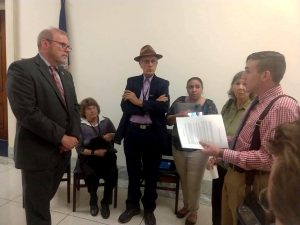
Big Stone Gap City Councilman Tyler Hughes presents Virginia Rep. Morgan Griffith with four local resolutions of support for extending the Black Lung Trust Fund while representatives from the Alliance for Appalachia look on.
###
Contacts:
Tyler Hughes, Big Stone Gap City Council – 276-220-2442
Willie Dodson, Appalachian Voices – 276-870-5843
No comments yet » Leave your own...
We know you haven’t heard from us in a while, but the Alliance for Appalachia’s efforts to support the health of mountain communities have continued behind the scenes. And now we your help to bring our message to Congress once more. Can you help us raise the funds by Sept. 15 to bring 40 representatives from our member organizations to Washington, D.C., this fall to tell their stories about mountaintop removal impacts, black lung, and the region’s efforts to create a sustainable economy?
Donate now
When Todd Waterman (pictured below right) came to Washington, D.C. with the Alliance for Appalachia two years ago, he probably didn’t know he would soon become a longstanding, go-to advocate for legislation in his state, and DJ Coker didn’t know he would soon join our Coordinating Committee and convene the Alliance’s regional Citizen’s Enforcement Team. What they did know was that they had a story to tell, that their communities matter, and that members of Congress have a duty to hear them out. Todd is pictured with (l-r): Representative Diane Black’s aide, Vickie Terry, DJ Coker, Caitlin Myers and Adam Hughes.

By bringing local leaders to share their stories and advocate for community-led change, we’re demonstrating the reason this Alliance was established– to amplify local work with a regional voice while building leadership and capacity to implement a just transition.
Your support will help us:
- Build leadership and capacity among residents of Appalachia and members of the Alliance by providing scholarships and training so that they may meaningfully engage with elected representatives.
- Meet with members of Congress to educate them on the health impacts of mountaintop removal coal mining in our communities and advocate support for the Black Lung Disability Trust Fund. For decades, coal companies have pushed their costs onto people living near their operations and bailed on promises to provide healthcare to coal miners struggling with black lung. The rate of coal miners lung disease has doubled in less than a decade, creating an industrial epidemic across Appalachia. As we work for a just transition, we must stand up for our neighbors and hold the coal industry accountable to their debts and devastation.
- Urge members of Congress to invest in our region by passing the RECLAIM Act (HR 1731). This unique, bipartisan proposal would release $1 billion of existing funds to clean up toxic pollution on abandoned mine sites and promote community-led development. We see reclamation as a key component to achieving clean water, while also providing an opportunity to boost development and job creation.
- Take action alongside allies in D.C. to reclaim the narratives and visions of people living in Appalachia by providing space for our members to tell their stories and experiences with confidence.
Grassroots support in 2016 made all the difference when we brought nearly 40 community leaders to DC. Together, we met with more than 35 congressional representatives and 8 federal agencies that have key roles in protecting our communities from environmental injustice, including 2 meetings at the White House with executive administration offices. The total cost of this upcoming trip is estimated to be over $27,000.
“If I’d learned one thing as an activist, it’s that saying ‘yes’ to something I’ve never done before can be a tremendously empowering experience . . . If I had a lot to learn, that meant I’d learn a lot.” – John Todd Waterman, TN climate activist and member of Statewide Organizing for Community eMpowerment. Read all about his 2016 experience in the full article.
Help us build leadership and capacity and provide a platform for grassroots leaders to speak truth to power in Washington, D.C. Join our efforts by contributing $10, $50, $100 or more by September 15!
Donate now
No comments yet » Leave your own...

Earlier this month, the Tennessee legislature passed the “Primacy and Reclamation Act of Tennessee” (the Strip Mine Tennessee Act). If signed by Gov. Haslam, this bill will create a new regulatory body to oversee strip mining in Tennessee �” one that is expected to be far more lenient than the current authority: the federal Office of Surface Mining Reclamation and Enforcement.
Take action today. Tell Governor Haslam to veto SB686/HB571, the “Strip Mine Tennessee Act!”
New coal mining permits are down in recent years and that trend is only expected to continue, but several counties of East Tennessee are left with contaminated water and vast scars on the land from the past impacts of this industry. In some communities, mountaintop removal mining is ongoing.
The regulatory body proposed in the Strip Mine Tennessee Act would likely make it easier for coal companies to acquire new permits and walk away from the environmental hazards and other liabilities associated with surface mines, leaving local residents and Tennessee taxpayers holding the bag.
The Strip Mine Tennessee Act puts our state’s natural heritage in peril and is projected to squander more than $1.5 million of taxpayer money in its first two years of implementation.
Gov. Haslam has until May 1 to veto this horrible legislation. Take action now to protect Tennessee’s natural heritage and taxpayers’ interests. Take the next step by calling Gov. Haslam at (615) 741-2001 to tell him to veto the Strip Mine Tennessee Act.

For the land and the people,
DJ Coker
Duff, Tenn.
No comments yet » Leave your own...

On Thursday, April 12, the West Virginia Department of Environmental Protection will hold a public hearing on proposed revisions to the Collins Fork Permit in Raleigh County. These revisions would allow Republic Energy, LLC, to forgo reclamation efforts and instead use the area to dump tires, store fuel, stockpile coal and store equipment.
Please join Coal River Mountain Watch at the Clear Fork Elementary School, 4851 Clear Fork Rd, Artie, WV 25008 on April 12 at 6:00 p.m. to speak out against these proposed revisions.
Even if you can’t attend in person, please add your name to tell WVDEP that Coal River Mountain is not a dump and that the permit revisions should be denied.
The Collins Fork Permit, S300208, is located at the head of Workman’s Creek and McDowell Branch on Coal River Mountain and is among 10 square miles of active and pending mining permits and sludge dams on Coal River Mountain.
The permit area is located within the Clearfork and Coal River watershed and was once forestland. Not only do the revisions endanger the community’s health and safety, they simply do not meet any reclamation standards set forth to restore ecosystems, forests or garner resources for the community.
Before it’s too late �” tell WVDEP to deny the proposed Collins Fork permit revisions.
Your voice is important and appreciated.
No comments yet » Leave your own...
 Together, we have done the research. We have laid the groundwork. We have engaged our communities and built support. Together, we have affirmed that the RECLAIM Act is a good opportunity for our communities!
Together, we have done the research. We have laid the groundwork. We have engaged our communities and built support. Together, we have affirmed that the RECLAIM Act is a good opportunity for our communities!
The RECLAIM Act would bring $1 billion �” money that has already been collected from coal companies �” back to these communities to repurpose abandoned mines while immediately creating jobs and supporting long-term economic development.
We need Congress to pass RECLAIM as part of the federal funding bill, and the deadline is this month. That’s why this week is extra critical! It’s an easy lift for the lawmakers, they just need to feel lots of public pressure to prioritize doing right by communities impacted by the coal industry. Your call will help make that happen.
It’s easy to make the call.
Just dial 202-816-6137.
When you call this number, you will hear a recorded message that will give you instructions for what to say to your U.S. Senator and then you will be patched through to your Senator’s D.C. office. The message to leave with them is simple:
“Pass the House version of the RECLAIM Act now.”

IF YOU ARE IN KENTUCKY:
Call Mitch McConnell. Senator McConnell needs to feel lots of pressure from Kentuckians. He needs calls from grassroots folks �” lots of them �” and to feel public pressure in the media. In addition, we are calling him out in Lexington! Join us tomorrow outside the Senator’s office:
Wednesday, March 14 @ 1:00
771 Corporate Dr #108
Lexington, KY 40503
Please share this post to help us get the word out, especially about grassroots call-in days happening March 13-15. Hashtag: #RECLAIMAct
Learn more and share this link on Facebook with your friends: powerplusplan.org/senate-pass-reclaim-act
No comments yet » Leave your own...

The Neely’s Creek Mine (permit 900-0047) in Pulaski County was issued in 2013, but mining still has not started. Now local citizens opposed to the mine have requested a hearing to stop the mine permit from being renewed.
Please attend the hearing to support community opposition to this mine.
The Neely’s Creek Mine threatens public land and water, as well as endangered wildlife. The mine is near the Sloans Valley and Neely’s Creek cave systems, which are home to the endangered Indiana grey bat. Blasting at the mine would endanger the structural integrity of the caves and threaten the bats that use the caves as their home.
This mine is also located in the Daniel Boone National Forest, less than 1 mile from the Cumberland River. Water pollution from the mine could easily enter the Cumberland River. Because of the mine’s location in the national forest and its proximity to recreational attractions, it also stands to adversely impact the area’s tourism economy.
Attend the public hearing on Wednesday, March 7 at 6 p.m. at Pulaski County High School. Tell the Kentucky Division of Mine Permits to deny this permit renewal.
You will be given a chance to speak if you choose, but you will not be required to speak. Members of The Alliance for Appalachia will be present at the hearing and can answer questions or concerns.
No comments yet » Leave your own...
 The federal Office of Management and Budget is seeking comment regarding the collection of annual reports and certifications for coal slurry impoundments and refuse piles. The Mine Safety and Health Administration (MSHA) has submitted an information collection request under the Paperwork Reduction Act, asking for a renewal of its reporting requirements without change.
The federal Office of Management and Budget is seeking comment regarding the collection of annual reports and certifications for coal slurry impoundments and refuse piles. The Mine Safety and Health Administration (MSHA) has submitted an information collection request under the Paperwork Reduction Act, asking for a renewal of its reporting requirements without change.
Impoundments are used to contain waste produced during the processing of coal before it is shipped. The resulting coal slurry contains harmful heavy metals and chemicals used in coal processing. There are nearly 600 of these impoundments across 21 states. These impoundments pose very real threats to the communities living nearby. Poorly maintained impoundments have collapsed and caused the death of mine workers and nearby residents.
MSHA currently requires coal mine operators to submit annual reports and certifications on refuse piles and impoundments and to keep records of weekly monitoring. These requirements help to ensure the safety of workers and communities living below impoundments.
Tell the Office of Management and Budget to approve MSHA’s monitoring and reporting requirements. Comments are due by Wednesday, Nov. 22.
2 Comments » Leave your own...
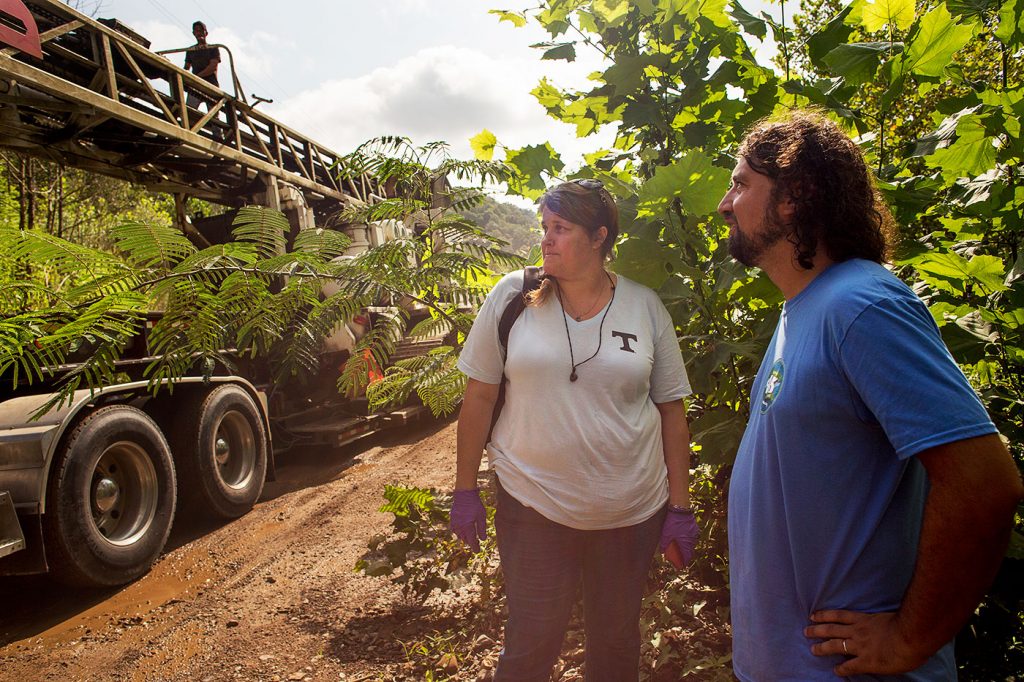
April Jarocki and Appalachian Voices’ Matt Hepler stand next to mining equipment next to the Hatfield Cemetery near Cooper Ridge Mine.
RSVP to attend a public hearing on September 20 to voice your opposition to this mine.
The devastating practice of destroying entire mountains and disposing of mining-waste into headwater streams is still happening across the Appalachian region. For folks living beneath these mines, the assertion that mountaintop removal is over can feel like a slap in the face. Despite dynamics and shifts in energy markets, when there is a mountaintop removal mine above your community, the issue is as dire as ever.
The Clearfork Valley of Tennessee has been intensely surface-mined going back decades. As a result, the ridges and hillsides of Campbell and Claiborne counties display a patchwork of mining scars in various states of affliction and gradual healing. Some of these scars are pre-regulation Abandoned Mine Lands while others illustrate the failures of common reclamation standards. The area’s waterways are contaminated to varying degrees with metals, salts and sediment, and support far less aquatic life than they once did.
Now, Kopper Glo Mining is moving forward with a nearly 1,500-acre mountaintop removal mine on Cooper Ridge, dealing yet another massive blow to the ecology and communities of this beautiful and resilient area.
Agency missteps in the permitting process
Kopper Glo began operations on Cooper Ridge Mine this past spring, clearing initial, albeit insufficient, regulatory hurdles. Now the company is seeking a Phase II National Pollutant Discharge Elimination System permit required under the Clean Water Act for discharging pollutants into public waterways. The second phase allows the company to release higher levels of pollutants than allowable under the Phase I permit.
The Tennessee Department of Environment and Conservation’s (TDEC) issuance of water pollution permits in phases is a notable problem. This allows the agency �” whose mission includes “protecting and improving the quality of Tennessee’s air, land, and water through a responsible regulatory system” �” to ignore the true total impacts of a mining operation on adjacent waterways by only considering portions of the mine’s impacts at any one time.
Another issue is that Kopper Glo and regulatory agencies consider this operation a “re-mining” project, suggesting that the area is already impacted by mining and that the Cooper Ridge mountaintop removal mine will serve to reclaim and improve previously mined areas. The truth is that only around one-third of the permitted area has been impacted by older strip mines. Rather than repair old scars of mining, the Cooper Ridge permit will simply triple the footprint of mining on this mountain.
Finally, Kopper Glo has a long history of violations at other mines in the area. Regulatory agencies like TDEC and the federal Office of Surface Mining Reclamation and Enforcement should not be so quick to grant additional permits to a company that has consistently demonstrated either an inability or unwillingness to operate within the confines of the law.
What’s wrong with this mine?
Any surface mine of this size will have severe impacts on ecology and nearby communities. This is especially true in areas like East Tennessee, where headwater streams abound and where homes are crowded into narrow valleys often right at the toe of mining operations. Concerns include excessive runoff, sedimentation of streams, alterations to groundwater hydrology and the discharge of high levels of selenium and other harmful substances into waterways.
In addition to adverse impacts to ground and surface water, the Cooper Ridge mine threatens important local community and cultural assets. The permit boundary sits just a half-mile behind Clairfield Elementary School, presenting concerns for the health and safety of the students, teachers and community members engaged in activities at the school. The mine also surrounds the historic and still-in-use Hatfield Cemetery �” an area where logging related to the mine has already occurred and where mine workers are now parking trucks and equipment.
Speak out against the Cooper Ridge mountaintop removal mine
You can support residents of the Clearfork Valley by attending a public hearing on September 20 to voice your opposition to this mine. The hearing will be held from 7:00-9:00 p.m. in the Recreation Building at Cove Lake State Park, 110 Cove Park Ln., Caryville, TN. Visit this page to RSVP, find a ride and connect with other people and resources if you’d like to attend this hearing. If you can’t make it to the hearing but want to make sure your voice is heard, you can submit a comment to the Tennessee Department of Environment and Conservation.
Whether you speak out at the public hearing or submit your comments online, preparation and clarity are key. Feel free to utilize any of the talking points below in developing your comments.
Talking Points
- Permitting in Phases: TDEC must consider all of the discharges from the entire proposed mine in a single permit process. By issuing water pollution permits in at least two separate phases, TDEC has failed to account for the full impact to the receiving streams.
- Impacts of Re-Mining: TDEC should not assume that re-mining will lead to an overall decrease in pollution from the site. In fact, evidence suggests that streams in the Clear Fork watershed have only recently begun to recover from the pollution impacts of historic mining and that recent mining has started to reverse that trend.
- Compliance History: The agencies should not reward a chronic violator with permits for a new surface mine. The permit application lists at least 17 notices of violation from OSM to Kopper Glo for its other coal mining operations in less than three years, including many violations related to water quality.
- Cumulative Impacts: Permitting authorities must address the cumulative impacts of water pollution discharged from all existing and proposed strip mines in the Clear Fork watershed before issuing any new permits.
- Selenium: The draft permit violates the Clean Water Act because it fails to fully evaluate the reasonable potential of discharges from the mine to violate water quality standards for selenium. Given that selenium is known to be present in variable concentrations in coal seams in Tennessee, TDEC should require the applicant to conduct and report representative core sampling to determine whether selenium is likely to be present in the coal to be mined from the site.
- Groundwater Impacts: This mine would affect groundwater because it will change the hydrology of the east side of Cooper Ridge and release pollutants now contained in the coal and the overburden at the site. Groundwater and surface water resources are closely connected in this area. There are at least seven households and two churches that use springs or wells for their water supply.
- Impacts on Sensitive Species: The blackside dace, a freshwater fish, is protected as threatened under the federal Endangered Species Act, in part because of pollution from surface coal mining. The Cooper Ridge mine will discharge polluted runoff water to tributaries of the Clear Fork, an important corridor that blackside dace use seasonally to seek spawning habitat in smaller streams. Blackside dace are extremely intolerant of elevated conductivity levels caused by dissolved solids from polluted mining runoff. Any discharge permit for the mine must impose limits on conductivity to avoid further harm to blackside dace.
- Community Cemetery: This mine will be near family cemeteries which must be protected. Community members must be able to access family cemeteries on Cooper Ridge, and we ask that the deep mine portal be moved further than 100 feet away from the Hatfield Cemetery.
- Economics: Tourism is important to the current and future economy of Tennessee. The Tackett Creek Wildlife Management area surrounds the proposed Cooper Ridge mine. This area has great potential for increased ecotourism that can benefit Tennessee’s economy more than another strip mine.
No comments yet » Leave your own...
 We need your help to do something amazing.
We need your help to do something amazing.









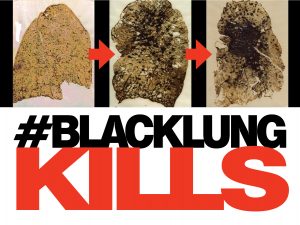

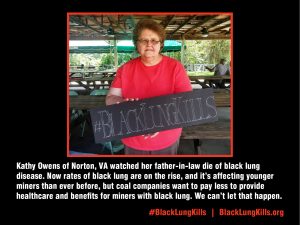


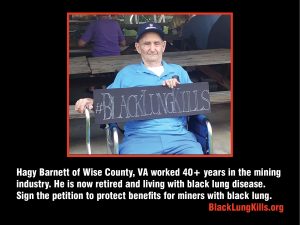









 The federal Office of Management and Budget is
The federal Office of Management and Budget is 
